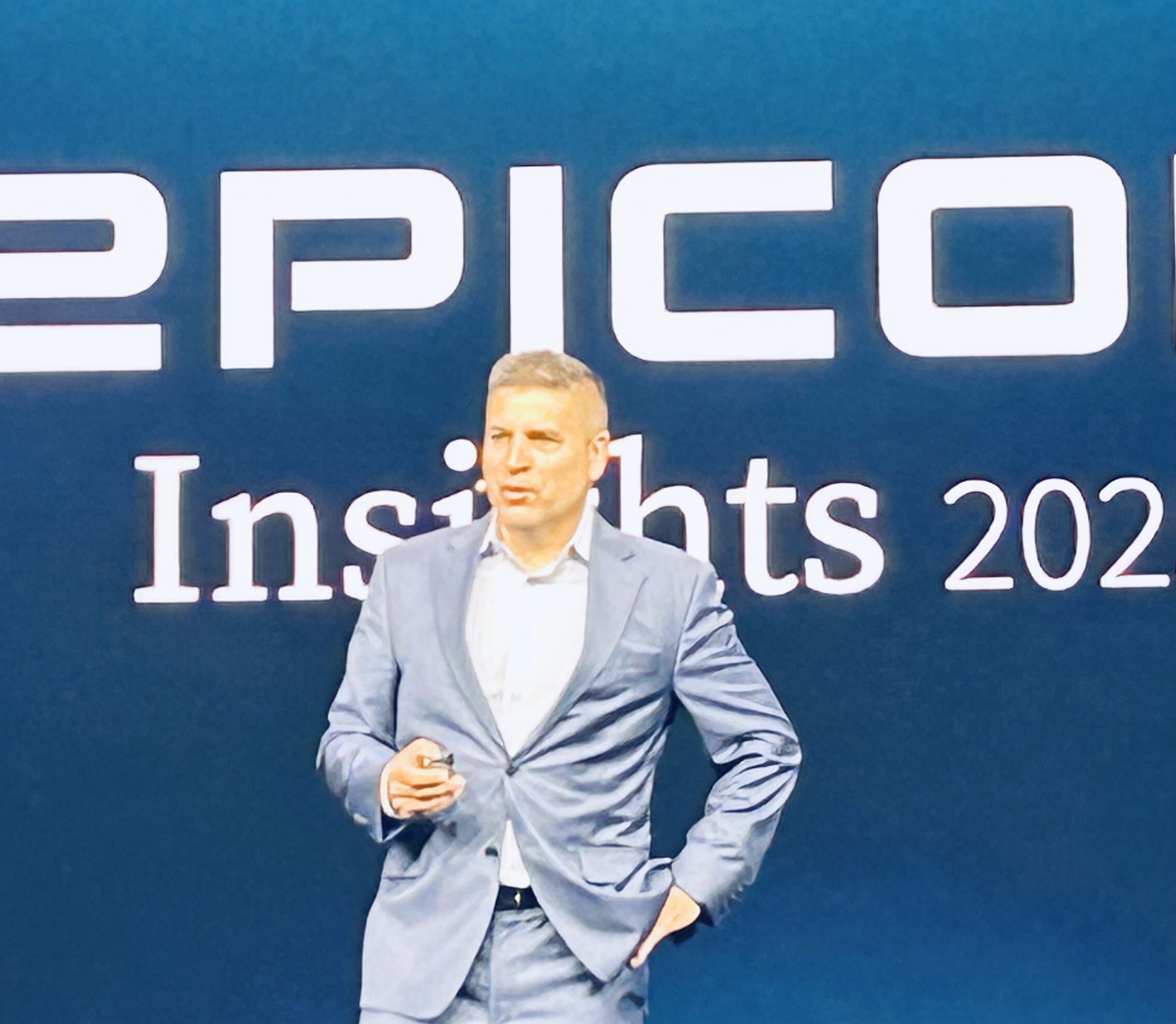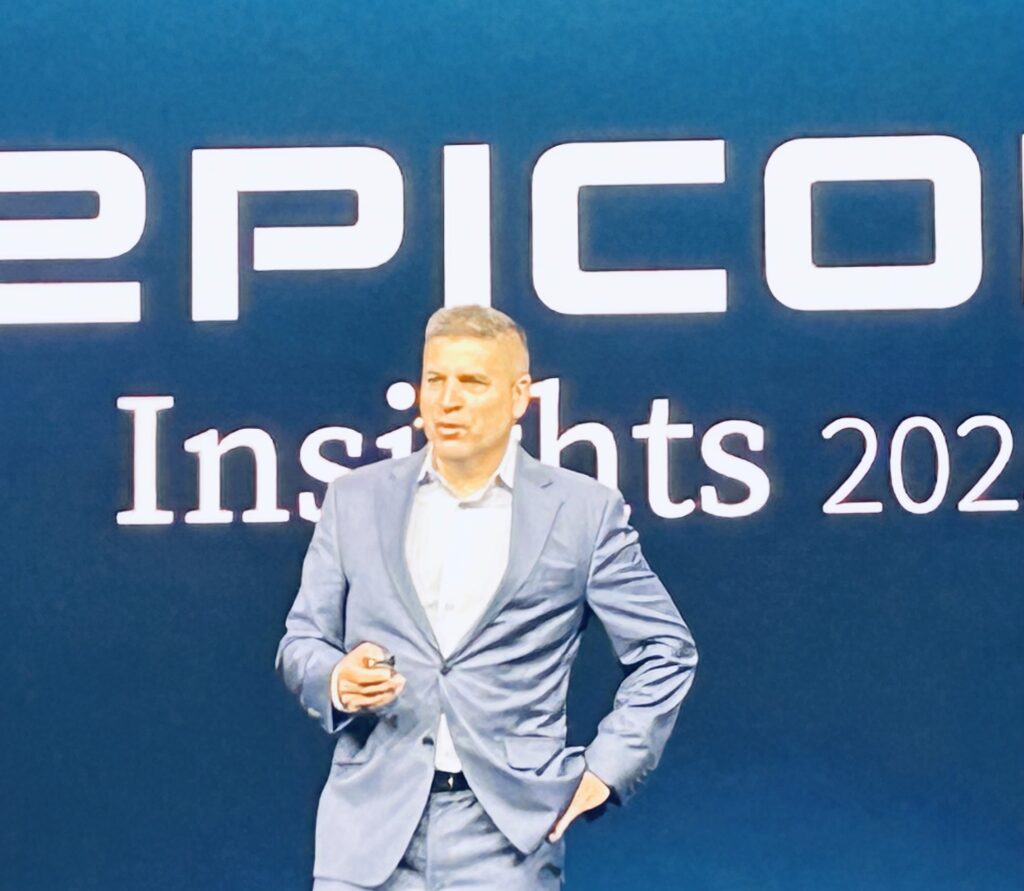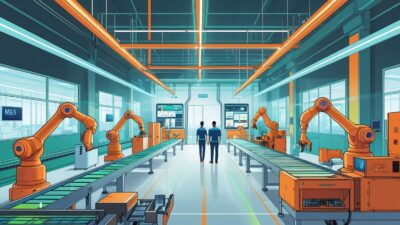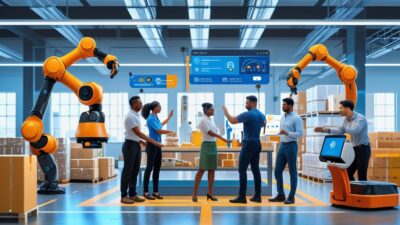Steve Murphy, CEO of Epicor, said he believes artificial intelligence (AI) has passed the Turing test, 75 years after Alan Turing posed the philosophical standards.

Artificial intelligence (AI) can do many things, from analyzing and sorting data to suggesting where you should eat in a new city.
But has it passed the Turing test, a philosophical test developed by one of the world’s first computer scientists, Alan Turing, in the 1950s. Turing suggested that if a machine could behave and respond in a way that a human would, artificial intelligence would be achieved.
In his keynote speech at Epicor Insights 2025, Epicor Chief Executive Officer Steve Murphy said he believes AI has passed this test already. But, he cautioned, he understands that some people don’t agree with his assessment. Machines are, he noted, not self-aware.
In the mid-1940s, Turing developed a computer that could decrypt messages the Germans were sending, launching the era of artificial intelligence in which machines could think and understand instructions.

the Turing test has been passed. Courtesy: WTWH Media
University of California at San Diego’s Turing test had surprising results
Murphy pointed to more than 75 years of progression from Turing’s decryption technology to today’s artificial intelligence.
For example, in 1989, IBM’s Deep Thought program challenged chess master Gary Kasparov to a match and lost. Eight years later, its Deep Blue program defeated him.
“And in 2025, GPT-4.5 passes the Turing test,” Murphy told attendees. “That’s my opinion. Artificial intelligence mimics what a human does and how they think. But it’s not self-aware. There’s no self-awareness in there.”
Murphy is referring to OpenAI’s GPT-4.5 model. At the University of California at San Diego researchers conducted two randomized, controlled and pre-registered Turing tests on independent populations. During the tests, GPT-4.5 was instructed to adopt a humanlike persona and was judged to be human 73% of the time when prompted by the respondents.
Bad Bunny versus AI?
Murphy said in his keynote that although AI is useful in both personal and business applications, and certainly in manufacturing processes, it can’t do everything.
Murphy shared an anecdote about how he wanted to see if artificial intelligence had created any music featured on the Billboard Hot 100 or if AI had written any of the books featured on the New York Times best sellers list.
“I had to find out who Bad Bunny is to be sure of that one,” he joked.

on the Billboard Hot 100. Courtesy: Getty Images
He said the Murphy test, his own estimation of the next level of artificial intelligence is when AI has gotten a song on the Billboard Hot 100 or a novel on the New York Times best sellers list.
Will AI tackle strategy?
Even though AI is a ways off from producing the next hit song or your favorite beach read, Murphy predicts we are only years away from artificial intelligence systems that can strategize for us.
“An AI system says build a new plant, and you build a new plant,” he said. “It says enter a new market, so you enter a new market, or it says fire the CEO, so you fire the CEO. Whatever it is. It’s not such a stretch. We’re years, a decade, and we’ll have AI systems that are sophisticated enough that they’ll do the strategy work people are doing now.”
But for now, AI has very specific use cases.
It can execute simple to moderately complex tasks, such as sorting spec sheets and answering specific queries. One case study Murphy quoted was a client utilizing Epicor’s AI technologies to get determine how many cabinets would be required to bid on a specific job.
“It can give you the number and the specifications,” he said. “You should be automating those processes and letting those people focus on higher-value tasks.”
Automating in action
Kay Barrett, the enterprise resource planning software specialist for ACS Manufacturing, a Denison, Texas-based company that manufactures acoustical enclosures and fuel tanks, automated its accounts payable system using Epicor’s enterprise content management (ECM) system.
“When we get an invoice from a vendor, it goes through the IDC ECM and goes straight into the ERP system and creates an invoice,” Barrett told Plant Engineering.
She says it’s cut the time on that task by 30%.



